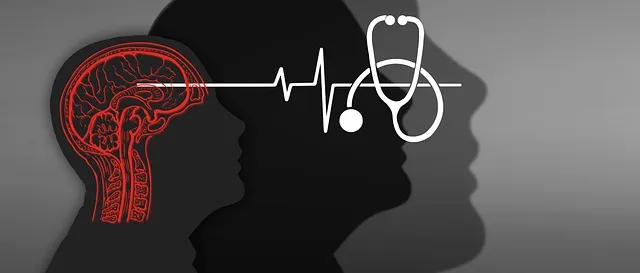Kaiser Permanente Mental Health Facility Denver prioritizes group facilitation as a powerful tool for enhancing patient care and promoting mental wellness. Through structured sessions, facilitators create safe, supportive environments where participants share experiences, learn from peers, and acquire practical tools for mood management and depression prevention. This collaborative approach combines active listening, emotional intelligence strategies, and risk management planning to foster open communication, build trust, and encourage holistic mental health within the Denver community. Measuring success through qualitative and quantitative methods ensures continuous improvement, making Kaiser Permanente's programs a model for effective mental wellness care.
At Kaiser Permanente mental health facility Denver, group facilitation plays a pivotal role in enhancing patient care. This article delves into proven techniques for facilitating effective mental wellness groups, focusing on creating safe spaces, fostering open communication, and engaging participants actively. We explore strategies to measure success and track progress, offering insights tailored to the unique environment of Kaiser Permanente’s facilities. By implementing these techniques, facilitators can revolutionize mental health support within their communities.
- Understanding the Role of Group Facilitation at Kaiser Permanente Mental Health Facility Denver
- Creating a Safe and Supportive Environment for Participants
- Effective Communication Strategies for Group Sessions
- Techniques to Foster Open Dialogue and Engagement
- Measuring Success and Tracking Progress in Mental Wellness Groups
Understanding the Role of Group Facilitation at Kaiser Permanente Mental Health Facility Denver

At Kaiser Permanente Mental Health Facility Denver, group facilitation plays a pivotal role in enhancing patient care and supporting mental wellness. Through structured group sessions, facilitators create a safe and supportive environment where individuals can share experiences, gain insights from peers, and develop effective coping strategies. This collaborative approach not only complements individual therapy but also empowers patients with practical tools for mood management and depression prevention.
The process involves dynamic communication strategies that encourage active participation and peer-to-peer learning. Facilitators guide discussions, foster open dialogue, and offer guidance tailored to each group’s unique needs. By integrating these techniques, Kaiser Permanente aims to improve patient outcomes, enhance resilience, and promote holistic mental health within the Denver community.
Creating a Safe and Supportive Environment for Participants

Creating a safe and supportive environment is paramount when facilitating mental wellness groups at Kaiser Permanente mental health facility Denver. This begins with establishing clear boundaries and expectations from the outset, ensuring all participants feel respected, valued, and heard. Facilitators should model active listening, empathy, and non-judgmental attitudes to cultivate an atmosphere of trust and vulnerability.
Encouraging open dialogue through compassionate cultivation practices like mindfulness exercises and burnout prevention techniques can help group members connect with one another on a deeper level. By fostering a sense of belonging and community, facilitators enable participants to build coping skills development together, leveraging the power of collective support tailored to their unique experiences and challenges.
Effective Communication Strategies for Group Sessions

In group sessions at a Kaiser Permanente mental health facility in Denver, facilitators play a pivotal role in fostering open and honest communication. Effective communication strategies are key to creating a safe and supportive environment where participants feel comfortable sharing their experiences and insights. Facilitators should encourage active listening by ensuring every voice is heard, promoting eye contact, and avoiding interruptions. This not only enhances understanding but also builds trust among group members.
Additionally, incorporating Emotional Intelligence (EI) techniques can significantly improve session dynamics. Facilitators can help participants recognize and manage their emotions, thereby encouraging positive thinking and constructive discussions. Risk Management Planning for Mental Health Professionals is another critical aspect, ensuring facilitators are prepared to handle any potential challenges or crises that may arise during sessions. By integrating these strategies, the group setting at Kaiser Permanente mental health facilities in Denver aims to provide a holistic and secure space for individual growth and collective support.
Techniques to Foster Open Dialogue and Engagement

Creating an environment conducive to open dialogue is a cornerstone of effective group facilitation at Kaiser Permanente mental health facilities in Denver. Techniques such as active listening and reflective summarization encourage participants to express their thoughts and feelings, fostering a sense of community and mutual understanding. Facilitators should also employ non-verbal cues and create safe spaces for sharing, ensuring every individual feels comfortable participating.
Emotional well-being promotion techniques are integral to these sessions. By incorporating activities that challenge assumptions and normalize mental health experiences, facilitators can help group members develop coping strategies tailored to their unique needs. Mental health education programs designed with a focus on engagement and interactivity cater to diverse learning styles, ultimately enhancing the overall effectiveness of the Kaiser Permanente mental health facility Denver services and contributing to burnout prevention efforts.
Measuring Success and Tracking Progress in Mental Wellness Groups

Measuring success and tracking progress are essential components of effective mental wellness group facilitation. At Kaiser Permanente mental health facilities in Denver, professionals use a combination of qualitative and quantitative methods to assess the impact of group sessions. This involves regular pre-post assessments to gauge improvements in participants’ mental wellness, with a focus on symptoms reduction and enhanced coping mechanisms. Additionally, ongoing feedback from group members through surveys and open discussions helps identify areas for improvement and ensures the program aligns with their evolving needs.
The use of Conflict Resolution Techniques, integral to many mental wellness programs, is also tracked as part of progress monitoring. By examining the frequency and resolution of conflicts within the group setting, facilitators can evaluate the effectiveness of these techniques in fostering a supportive environment. This data, alongside participant testimonials and case studies, contributes to the overall success narrative, providing valuable insights for continuous improvement in mental wellness podcast series production and beyond.
Group facilitation plays a pivotal role in enhancing mental wellness at Kaiser Permanente mental health facility Denver. By creating safe spaces, employing effective communication strategies, fostering open dialogue, and tracking progress, facilitators enable participants to navigate their journeys towards improved mental health. These techniques not only enrich the group experience but also serve as powerful tools for personal growth and community building within the Kaiser Permanente mental health facility Denver environment.






